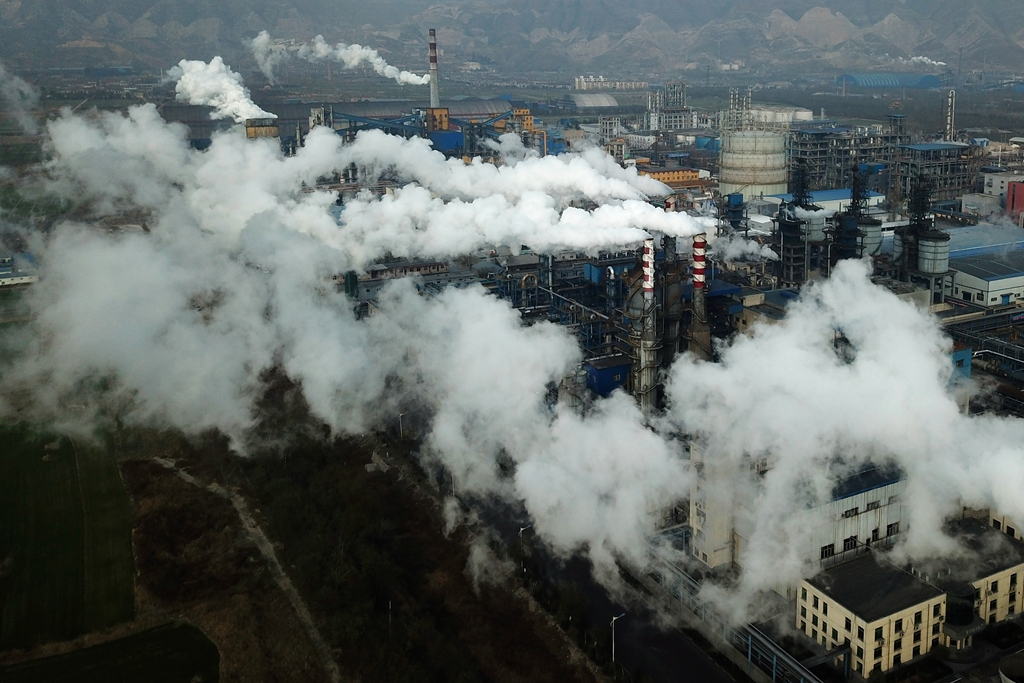
2019 was the second hottest on record since modern record-keeping of the global temperature started in 1880, according to an analysis jointly released by NASA, the National Oceanic and Atmospheric Administration and the World Meteorological Organization last week.
And with the severe melting of Greenland's ice sheet and the long-lasting bushfires in Australia, concerns around the climate have been growing worldwide.
Under the theme "Stakeholders for a Cohesive and Sustainable World," the 2020 World Economic Forum is underway from 21 to 24 January in Davos, Switzerland, which lists "How to Save the Planet" as one of the main focuses.
China on path to meet climate target a decade early
China is the largest emitter of heat-trapping greenhouse gases in the world with its cities contributing more than 35 percent to the total emissions.
In 2018, China informed the United Nations Framework Convention on Climate Change about achieving 2020 carbon emission target three years ahead of schedule.
UN Secretary General Antonio Guterres said last September right before the 2019 UN Climate Action Summit that China is fulfilling its commitments made in the Paris Agreement ahead of schedule.
A study published in journal Nature Sustainability last July by a team of researchers from Chinese Academy of Sciences, Nanjing University and Harvard University indicated that emissions for China should peak at 13 to 16 giga-tonnes of carbon dioxide between 2021 and 2025, approximately five to 10 years ahead of the current Paris target of 2030.

The Paris Agreement aims at keeping a global temperature rise this century well below two degrees Celsius above pre-industrial levels and to pursue efforts to limit the temperature increase even further to 1.5 degrees Celsius. /AP Photo
The Paris Agreement aims at keeping a global temperature rise this century well below two degrees Celsius above pre-industrial levels and to pursue efforts to limit the temperature increase even further to 1.5 degrees Celsius. /AP Photo
The researchers call it "a great contribution" to meeting the Paris deal's target of limiting global temperature increase to well below two degrees Celsius, while pursuing efforts to limit the increase to 1.5 degrees.
Similar research conducted by Tufts University in last March also predicted China reaching carbon emission peak much before 2030.
China has continued to advance its efforts to tackle climate change in 2019.
According to an annual report on China's Policies and Actions for Addressing Climate Change released by the Ministry of Ecology and Environment on November 27, 2019, the country's carbon emission intensity dropped by 45.8 percent in 2018 compared with 2005, maintaining a continuous decline.
This figure has reached the commitment of reducing carbon emission intensity by 40-45 percent in 2020 compared with 2005 ahead of schedule, basically reversing the situation of rapid growth of greenhouse gas emissions.
Zhao Yingmin, vice minister of China's Ministry of Ecology and Environment, said in an interview with Xinhua News Agency during the 2019 UN Climate Change Conference last month that facing the challenge of climate change, no country can address it alone.
"All countries need to work together and strengthen their efforts," he said, adding that China will try hard to overcome the problems and difficulties, and carry out the national strategy addressing climate change and fulfill its commitments, in a bid to make contributions to the construction of the global ecological civilization and the community with shared future for mankind.